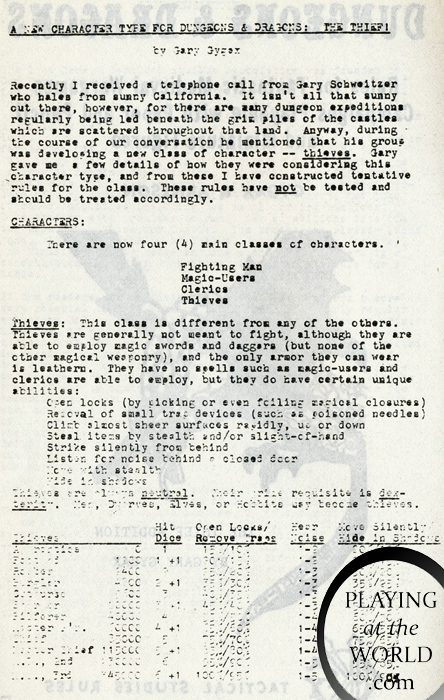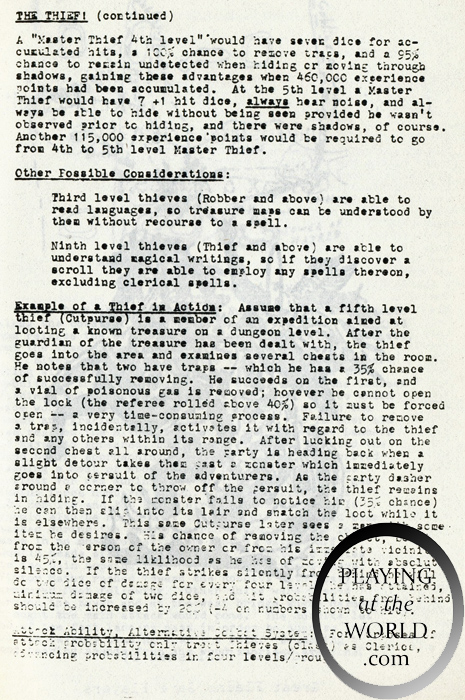Tony Vargas
Legend
Frankly, reversing all those mistakes wouldn't topple 3e casters from Tier 1. Retaining fiddly restrictions on casting, giving everyone all-good saves and nerfing save-DC-inflating loopholes, and nerfing spells like Polymorph et al, would /still/ have left the Tier 1 prepped casters super-versatile relative to the feat-specialized fighter, rage-specialized barbarian, and skill-specialized Rogue.I don't fully agree with that. My take is that casters hit tier 1 in 3e because a) they made the decision to remove a lot of the fiddly restrictions on when you could cast so that getting casting interrupted became unreasonably hard and b) because when they finally invented difficulty they made the mistake of applying it to the magic system as well as the skills system in a way that was extremely over aggressive and c) because they from experience in 1e they erroneously thought the only real balance problems with magic was probably things like fireball.
I'm surprised that didn't make an impression on me back in the day.I need to dig up Len Lakofka's write up on the thief, but the its somewhere between what you are thinking and what Garthanos is thinking. In brief, yes the thief is meant to give you abilities that are otherwise impossible.
The experience of the game was /so/ varied back in the day. I can only say my experience was it did exactly that: oh, the Thief has these % abilities, other characters don't, these tasks must be the Thief's raison d'etre, that's why it's attack & save matrixes are so bad, why it's HD are low, why it can't wear armor or use many weapons... because those few skills, at such low % are /just that valuable/, and, to protect that niche, /must/ be exclusive.But it's not meant to make impossible what is an act of ordinary skill.
2e, BTW, did seem to cross that line, and imply that NWPs could duplicate Thief special abilities, and with a much better chance of success. I'm not sure anyone ran with that implication, but I remember being perplexed by it and ultimately not using NWPs, in part, because of that. (I went for a variant that let characters define one skill that they were exceptionally good at, instead, and assumed broad competence with level outside of that.)


